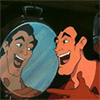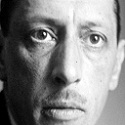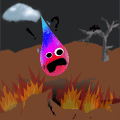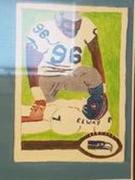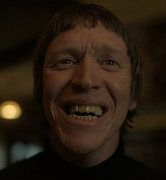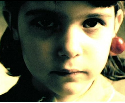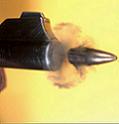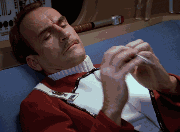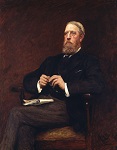|
Orlando Figes " A Peoples tragedy: A history of the Russian revolution" is a fairly good read and comprehensive book outlining events from 1891 to 1924 (lenins death). Now he is extremely pretentious and sometimes the book jumps suddenly into a particular debate of academia, so its style changes. Mostly he uses alot of first hand sources to tell the story of the past for him, but these are not always fact checked and some of his assertions otherwise dont stand up. Hes a scummy author- caught rating other history books 1 star on amazon with bad reviews, but 5 stars and praise for his own! Overall however he presents a deep and fresh populist interpretation of the "communist" revolution which shook the world.
|
|
|
|

|
| # ? May 13, 2024 23:18 |
|
 http://www.goodreads.com/book/show/225947.The_History_of_the_Ancient_World First history book I've read outside of school. Seems to explain everything well for the layman, but not in a dumbed-down kind of way. Not finished it yet, don't know how it ends.
|
|
|
|
KingBee18 posted:Orlando Figes " A Peoples tragedy: A history of the Russian revolution" is a fairly good read and comprehensive book outlining events from 1891 to 1924 (lenins death). Now he is extremely pretentious and sometimes the book jumps suddenly into a particular debate of academia, so its style changes. Mostly he uses alot of first hand sources to tell the story of the past for him, but these are not always fact checked and some of his assertions otherwise dont stand up. Hes a scummy author- caught rating other history books 1 star on amazon with bad reviews, but 5 stars and praise for his own! Overall however he presents a deep and fresh populist interpretation of the "communist" revolution which shook the world. Is there something else you would recommend that covers more or less the same subject and time frame?
|
|
|
|
Just get a copy of Riasanovsky's A History of Russia and be done with it.
|
|
|
|
fspades posted:So what are some good books about Ming-era China? Nobody?  Ok, what about other periods of Imperial China then? Ok, what about other periods of Imperial China then?
|
|
|
|
TheBandersnatch posted:Does anyone have suggestions for books about Quebec history? I have A People's History of Quebec but am finding it a bit of a slog. Perhaps a more targeted book, if any exist? Can you read French at a college level?
|
|
|
|
So yesterday my dad dropped a bombshell and told me Christopher Columbus was actually beaten to the American punch by a pretty huge margin. My uneducated mind was thoroughly blown, so I was wondering if anyone could recommend some good reads on Leif Ericson, or I guess Norse history in general if that's too specific a topic (? I'm obviously a total neophyte when it comes to anything outside of relatively modern history). I'm not averse to textbooks, but I'd definitely prefer something a little more accessible, if possible.
|
|
|
|
Anybody have good recommendations for a comprehensive history of the Jews and Judaism, from ancient times to modern? I'm looking for something reasonably rigorous, but readability is most important to me -- I spend most of my days at work reading dry academic material as it is so I'm looking for something a bit easier to cope with.
thorsilver fucked around with this message at 19:21 on Sep 1, 2013 |
|
|
|
What are the go-to books on the Treaty of Westphalia? I'm mainly looking for how it influenced legal and political traditions going forward.
|
|
|
|
I read 2 history books this vacation. The first was about the Basque people and it's called The Basque History of the World: The Story of a Nation by Mark Kurlansky. While it generally is good the author does have a (not very surprising, considering his other work) tendency to get derailed and start discussing food in the middle of chapters. There's also a bunch of introductions to people that go nowhere but overall it was an enjoyable and easy read. The other book I read was Hans Vogel's History of Latin America which was, for as far as I got, absolutely dry and badly written. None of the information in the parts of the book I read (I got to about 30% before I gave up) was anything above the level of the average wikipedia article so I really can't recommend this. If anyone has a good book about Latin-American revolutions however I would be glad to hear it.
|
|
|
|
poisonpill posted:What are the go-to books on the Treaty of Westphalia? I'm mainly looking for how it influenced legal and political traditions going forward. A friend says that there isn't really much in book form, but suggests these two possibilities. There is Germany and the Holy Roman Empire: Volume II: The Peace of Westphalia to the Dissolution of the Reich, 1648-1806 by Joachim Whaley, which seems to exists only as an expensive academic edition. quote:Germany and the Holy Roman Empire offers a striking new interpretation of a crucial era in German and European history, from the great reforms of 1495-1500 to the dissolution of the Reich in 1806. Over two volumes, Joachim Whaley rejects the notion that this was a long period of decline, and shows instead how imperial institutions developed in response to the crises of the sixteenth and seventeenth centuries, notably the Reformation and Thirty Years War. The impact of international developments on the Reich is also examined. Volume II begins with the Peace of Westphalia and concludes with the dissolution of the Reich. Whaley analyses the remarkable resurgence of the Reich after the Thirty Years War, which saw the Habsburg emperors achieve a new position of power and influence and which enabled the Reich to withstand the military threats posed by France and the Turks in the later seventeenth century. He gives a rich account of topics such as Pietism and baroque Catholicism, the German enlightenment, and the impact on the Empire and its territories of the French Revolution and Napolean. Whaley emphasizes the continuing viability of the Reich's institutions to the end, and the vitality of a political culture of freedom that has been routinely underestimated by historians of modern Germany. More generally, Exorcising the Ghost of Westphalia: Building World Order in the New Millennium by Charles W. Kegley and Gregory A. Raymond quote:The authors of this groundbreaking book take as a point of departure the precedent-setting agreements established by the Treaties of Westphalia to illuminate the options for maintaining peace. The book describes the system of world order established by the Peace of Westphalia and offers readers an evaluation of its relevance for the increasingly globalized world of the early twenty-fist century, as well as proposing an alternative system of global governance. Provides comprehensive coverage of the causes of great-powers war, the evolutionary course of the Thirty Years' War, durable peace settlements, the relevance of Thirty Years' War to today's environment, and offers an alternative model of world order. For individuals interested in international relations and global issues.
|
|
|
|
Davincie posted:I read 2 history books this vacation. The first was about the Basque people and it's called The Basque History of the World: The Story of a Nation by Mark Kurlansky. While it generally is good the author does have a (not very surprising, considering his other work) tendency to get derailed and start discussing food in the middle of chapters. There's also a bunch of introductions to people that go nowhere but overall it was an enjoyable and easy read. I'm enjoying Bolivar by Marie Arana, but I know nothing about South American history, so take that with a grain of salt.
|
|
|
|
dokmo posted:A friend says that there isn't really much in book form, but suggests these two possibilities. Thanks! I would've thought this would be a bigger topic.
|
|
|
|
Le Woad posted:Is there something else you would recommend that covers more or less the same subject and time frame? Hey, sorry for the long response time. Hmm. I'm not sure I could. Many of the books I've read on the matter are written in a manner which makes it clear that its for students of a particular level, and have a rigid textbook like structure. And others I've read - for example martin sixsmiths "A 1000-Year Chronicle of the Wild East", and Eric Hobsbawns Age of Extremes (1914-1991), deals with additional time periods also - which are interesting in their own way, but arn't what you are looking for. Sorry. If you want a quick introduction to the Russian Revolution, there is a great series of books I've stumbled upon, covering many topics from Buddism to Economics, which come from oxford press (http://en.wikipedia.org/wiki/Very_Short_Introductions). There is one on the Russian revolution, I havn't read it yet but I've found a few gems there and I'm sure it should be small, concise, personal and highly readable. Whilst I'm here I've got to mention another historical piece of work, the best analysis of the development and logic of Nationalism I've seen. Now its written by an anarchist, so he tries (and is pretty convincing_ to show how it relates to statist despotism, and the type of culture inherant within. But he does so with a massive analysis - he spent apparently 30 years on and off writing it so its quite dense and extensive. Even if you do not lean towards the libertarian left its still fascinating. Rudulf Rocker: Nationalism and culture. KingBee18 fucked around with this message at 20:21 on Sep 7, 2013 |
|
|
|
I'm pursuing an interest in the Russian Revolution(s) (full disclosure: there's a family connection and I'm thinking of designing a boardgame on the topic). Thus far I've read the Russian Revolution in an Hour. Not a bad place to start but obviously brief and it showed me how complex the subject was. Pointers for further reading? From point of view of the game, I'm particularly interested in the wider context, what-ifs and social forces.
|
|
|
|
The Russian Civil War by Evan Mawdsley might be right up your alley then. It covers the very start with men being shipped off to sway votes for the socialists and how boshlikvism took charge and goes over every white force that took action and foreign intervention. Food, production, trains and politics are present in full force so get ready.
|
|
|
|
Stravinsky posted:I know that this may be a little outside of the scope of the thread but does anyone have any recommendations for books covering world religions. I am woefully ignorant about anything that isn't Christianity/Judaism or Greek/Norse/Roman mythology. Karen Armstrong is quite good. She has a book called The Great Transformation: The World in the time of Buddha, Socrates, Confucius and Jeremiah.
|
|
|
|
Stravinsky posted:The Russian Civil War by Evan Mawdsley might be right up your alley then. It covers the very start with men being shipped off to sway votes for the socialists and how boshlikvism took charge and goes over every white force that took action and foreign intervention. Food, production, trains and politics are present in full force so get ready. Cheers - going to order it now.
|
|
|
|
I just finished reading Giles Milton's new book Russian Roulette: A Deadly Game: How British Spies Thwarted Lenin's Global Plot, which shows Russian Revolution from the other side. It might not be what you're looking for as the focus is on British spies in Russia 1916-1919 not on the Revolution itself, but the book is really worth reading if you're at least slightly interested in the subject. It's very well written, gets you hooked from the get go and never lets go. My only problem is the fact that Milton evidently doesn't know Russian. That means all his sources are British with some Indian one mixed in, and every single Russian phrase in the book was transliterated incorrectly (although it was a proof copy). The book is a great read, however, if you don't mind seeing only one side of the story (this fact is mentioned in the subtitle, however).
|
|
|
|
TheBandersnatch posted:Does anyone have suggestions for books about Quebec history? I have A People's History of Quebec but am finding it a bit of a slog. Perhaps a more targeted book, if any exist? I read a book awhile back that was decent, but it only pertains to the October Crisis with the FLQ rather than Quebec history as a whole. If that's what you mean by 'targeted' it might be a good read for you http://www.amazon.ca/The-October-Crisis-1970-Insiders/dp/0773538011
|
|
|
|
Pron on VHS posted:Thank you for this, I was looking for something outside of the European angle so I purchased your second recommendation. I know this was a while ago but if you're still checking the thread or for anyone else who's interested The Great Partition is a good resource for the split of Pakistan, India, and Bangladesh. It's by Yasmin Khan and generally doesn't white wash how colonization managed to interfere with the process of partition. It is a bit more focused on the immediate aftermath of Partition so if you're looking for the lead up to it, it might not be for you. There are somewhat graphic photos in the book that detail the massacres on both sides of the India/Pakistan border, so if you're a bit squeamish it might be a little tough to look at. It's one of my go-to non-fiction books that deals with the subject.
|
|
|
|
Anyone know of a good book on Canadian history? I have never really read anything at all, and feel like I should know more about my country. So general overviews are perhaps better, but I'll read anything as long as it is interesting and informative.
|
|
|
|
thehoodie posted:Anyone know of a good book on Canadian history? I have never really read anything at all, and feel like I should know more about my country. So general overviews are perhaps better, but I'll read anything as long as it is interesting and informative. Robert Bothwell's The Penguin History of Canada is widely regarded as the best single volume history out there, although I prefer Roger Riendeau's A Brief History of Canada. You can't go wrong with either of these.
|
|
|
|
So I'm becoming more and more curious about European colonization efforts in the Americas and beyond. Can anyone recommend some good sources - since I'd kind of like academic level histories, I assume I'm going to need different ones for different regions and parent governments.
|
|
|
|
Can anyone recommend some good books about Joséphine Bonaparte, Marie Louise of Austria or Napoleonic France in general? We've been discussing this time period in one of my classes and I'm realizing that I know far less than I thought I did.
|
|
|
|
dokmo posted:Robert Bothwell's The Penguin History of Canada is widely regarded as the best single volume history out there, although I prefer Roger Riendeau's A Brief History of Canada. You can't go wrong with either of these. The Penguin History of Canada is very, very good. I learned more about Canada then most of the Canadians I knew from this book.
|
|
|
|
I know some people might consider it "history lite" but man I am really enjoying Sarah Vowell's The Wordy Shipmates. I'm listening to the audiobook and I like the different voices for the different primary document authors, although John Oliver sounds strange. I really, really like Vowell's way of blending humor and solid historical research and anecdotes about both her life and historical people. I'm not from the East coast and I'm not religious so I didn't really think I'd like something about the Puritans but, no, it's fascinating!
|
|
|
|
Tupping Liberty posted:I know some people might consider it "history lite" but man I am really enjoying Sarah Vowell's The Wordy Shipmates. Very good chance you'll also like Unfamiliar Fishes by her as well, if you haven't read/listened to it yet.
|
|
|
|
I'm not usually big on bios, but does anyone have a definitive biography on FDR?
|
|
|
|
|
Just finished Crucible of War, that was great. I'm reading through a few books right now, I have the habit of juggling stuff. How Rome Fell, The Fatal Shore, The Devil's Gentleman... I was just wondering to myself if anyone had any good books on Popes? Perhaps one going through them one by one or a particularly interesting book about one or two of them? I was just reading How Rome Fell as it went through the various late era Emperors and I thought to myself, "I wonder if there's an interesting book along these lines that is a Papal history of sorts."
|
|
|
|
TheFallenEvincar posted:I was just wondering to myself if anyone had any good books on Popes? Perhaps one going through them one by one or a particularly interesting book about one or two of them? My "to read" stack has a book in it called "Absolute Monarchs" which I'm pretty sure is about popes. I think maybe someone here recommended it?
|
|
|
|
Is there an online resource somewhere that offers maps of regions in different time periods? I find myself plugging in cities in Google Earth to get a context of where everything is taking place. I'm curious if anyone has a better solution to that other than using a particular books given maps. No specific time period I had in mind, I read anything I can based on medieval to current times. This probably applies more to military history type books. If anyone has a better method let me know!
|
|
|
|
TheFallenEvincar posted:Just finished Crucible of War, that was great. I'm reading through a few books right now, I have the habit of juggling stuff. How Rome Fell, The Fatal Shore, The Devil's Gentleman... withak posted:My "to read" stack has a book in it called "Absolute Monarchs" which I'm pretty sure is about popes. I think maybe someone here recommended it? It was a pleasant enough read, although not a serious history. An excellent book covering the history of Christianity (not just the popes) is A History of Christianity: The First Three Thousand Years by Diarmaid MacCulloch It seems to me that it would be hard to write something like a history of popes considering the sheer span of time and changing contexts. You can probably find much better books that concentrate on more specific periods (eg the long chapter on the disastrous Renaissance popes in Barbara Tuchman's The March of Folly).
|
|
|
|
TheFallenEvincar posted:Just finished Crucible of War, that was great. I'm reading through a few books right now, I have the habit of juggling stuff. How Rome Fell, The Fatal Shore, The Devil's Gentleman... The Popes: A History sounds like exactly what you are looking for. I enjoyed it immensly, but given the size of the subject matter, some periods are more detailed than others. There is not much known about the earliest popes, for instance.
|
|
|
|
For something that really focuses in on one period, in detail, of church history, I always recommend Mullin's The Popes of Avignon: A Century in Exile and Yves Renouard's The Avignon Papacy: The Popes in Exile 1305-1403. Mullin's book is a bit more of a popular history, but it's a really readable narrative work on the period. Renouard's book was one of the standard academic intros to the period in French and English (and it goes into really heavy detail on the individual popes who sat in Avignon and the culture that they patronized), and it really helped in grad school. Fake edit: There's a cheaper reprint of Renouard's book from BN.
|
|
|
|
Of these WWI books: The Sleepwalkers: How Europe Went to War in 1914 by Christopher Clark The War That Ended Peace: The Road to 1914 by Margaret McMillan Catastrophe 1914: Europe Goes to War by Max Hastings The Guns of August by Barbara Tuchman To End All Wars: A Story of Loyalty and Rebellion, 1914-1918 by Adam Hochschild Can anyone help with recommendations or brief summaries of how they're different? I'd like to read one or two but I can't figure out what sets them apart from each other. Thanks.
|
|
|
Dunbar posted:Of these WWI books: If you're going to read one book about World War I, read The Guns of August. It's a timeless classic of history for a reason, it's referenced everywhere, it is the big-name WW1 book.
|
|
|
|
|
Dunbar posted:Of these WWI books: I've read The Sleepwalkers & The Guns of August. Sleepwalkers is more about how the situation in Europe allowed the war to begin. It stops as mobilization begins. The Guns of August is about the immediate build up & the first month of the war. Both are excellent, but approach different parts of the war. I've not read Catastrophe, but I saw a review that seemed to suggest that it covers more of the war than Guns of August. If you like Sleepwalkers I can also recommend The Lions of July which covers the actions of the diplomats during the buildup to the war. Dreadnought & Castles of Steel are also both excellent books about the period before war & the war, primarily from a naval angle, but also focusing on the personalities of the period.
|
|
|
|
Are there any good books that covers naval events/developments during the interwar period, and/or about the Washington/London Naval Treaties?
|
|
|
|

|
| # ? May 13, 2024 23:18 |
|
I would also recommend The World Crisis by Churchill. Honestly it's not a great book but given he is the only leader to real sit down and write about both wars it's worth a read.
|
|
|





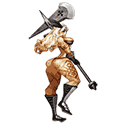
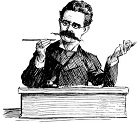

 Yes, it's like a lava lamp.
Yes, it's like a lava lamp.





